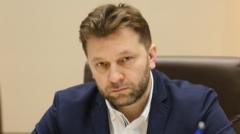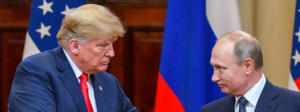Moldova, under pro-EU leadership, is actively luring foreign entrepreneurs by offering low tax rates and modernization efforts, despite lingering political tensions and economic challenges. Successful initiatives, such as the Moldova IT Park, aim to elevate the country’s IT sector and put it on the global map.
Moldova's Push for Foreign Investment: A New Frontier for Entrepreneurs

Moldova's Push for Foreign Investment: A New Frontier for Entrepreneurs
As Moldova seeks to modernize and integrate with the European Union, the nation is attracting foreign businesses with favorable tax policies and progressive reforms.
Moldova is experiencing a transformation as it strives to attract foreign businesses amid a challenging political landscape. Dutch entrepreneur Luc Vocks, who established DevelopmentAid in the capital Chisinau, exemplifies the growing trend of foreign investment in the formerly Soviet republic. Since Vocks’ arrival in 2007, the country has undergone significant changes, shedding its past of political uncertainty and corruption.
Vocks recalls the initial challenges he faced in business setup, including rigid bureaucracy and a difficult banking system. Today, however, Moldova’s government is proactively working to modernize, aiming for EU membership by 2030. The administration, led by pro-EU President Maia Sandu, has introduced enticing tax incentives for businesses, including a competitive 12% corporation tax rate, significantly lower than that of the UK and the Netherlands. Notably, the Moldova IT Park (MITP) initiative offers IT firms a mere 7% tax rate and exempts them from employer social security contributions, creating a favorable environment for technology companies looking to settle or expand.
For instance, Vocks signed up with the MITP as soon as it launched. This initiative is pivotal for attracting international companies; since its inception, over 2,000 firms have registered, with around 300 relocating from countries such as the US, UK, and Germany. In the first half of 2024 alone, these firms generated €365 million in revenue and now employ around 22,000 individuals, contributing about 6% to the nation’s GDP.
Despite these advancements, some concerns remain. The ongoing war in Ukraine, for example, poses a challenge for attracting investment, as firms remain cautious. Moreover, rising salaries within the newly invigorated IT sector are prompting local firms to grapple with increasing labor costs. German entrepreneur Sven Wiese notes that larger firms registered with the MITP can offer salaries upwards of €100,000, an attractive figure compared to larger Western markets.
While many Moldovan IT workers are seeking opportunities abroad, the MITP program has simplified immigration for foreign tech talents, making Moldova a more competitive player as a regional business hub. However, emigration remains an issue, as some skilled workers still aspire to leave the country for better prospects.
Looking forward, the Moldovan government, represented by Deputy Prime Minister Dumitru Alaiba, expresses optimism about the nation’s trajectory. Rankings on the global Corruption Perceptions Index suggest improvements in the perception of corruption, and the government is committed to hastening reforms. Despite geopolitical tensions, Moldova's efforts to position itself as a viable business location continue, offering a unique intersection of cultures and economic opportunities in Eastern Europe.
Vocks recalls the initial challenges he faced in business setup, including rigid bureaucracy and a difficult banking system. Today, however, Moldova’s government is proactively working to modernize, aiming for EU membership by 2030. The administration, led by pro-EU President Maia Sandu, has introduced enticing tax incentives for businesses, including a competitive 12% corporation tax rate, significantly lower than that of the UK and the Netherlands. Notably, the Moldova IT Park (MITP) initiative offers IT firms a mere 7% tax rate and exempts them from employer social security contributions, creating a favorable environment for technology companies looking to settle or expand.
For instance, Vocks signed up with the MITP as soon as it launched. This initiative is pivotal for attracting international companies; since its inception, over 2,000 firms have registered, with around 300 relocating from countries such as the US, UK, and Germany. In the first half of 2024 alone, these firms generated €365 million in revenue and now employ around 22,000 individuals, contributing about 6% to the nation’s GDP.
Despite these advancements, some concerns remain. The ongoing war in Ukraine, for example, poses a challenge for attracting investment, as firms remain cautious. Moreover, rising salaries within the newly invigorated IT sector are prompting local firms to grapple with increasing labor costs. German entrepreneur Sven Wiese notes that larger firms registered with the MITP can offer salaries upwards of €100,000, an attractive figure compared to larger Western markets.
While many Moldovan IT workers are seeking opportunities abroad, the MITP program has simplified immigration for foreign tech talents, making Moldova a more competitive player as a regional business hub. However, emigration remains an issue, as some skilled workers still aspire to leave the country for better prospects.
Looking forward, the Moldovan government, represented by Deputy Prime Minister Dumitru Alaiba, expresses optimism about the nation’s trajectory. Rankings on the global Corruption Perceptions Index suggest improvements in the perception of corruption, and the government is committed to hastening reforms. Despite geopolitical tensions, Moldova's efforts to position itself as a viable business location continue, offering a unique intersection of cultures and economic opportunities in Eastern Europe.




















